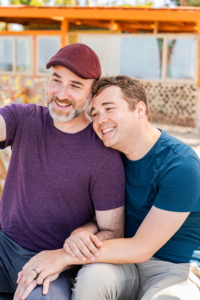Kashrut on The Commons
A core practice of The Hive is “radical hospitality,” ensuring we make guests and members feel at home and welcome here. It extends to all of Leichtag Commons, as we strive to make this property generously inviting to all people, whether they are friends or strangers.
We carry radical hospitality through to our culinary experiences, too.
Food is a vehicle for connection. Family dinners, gourmet restaurants and even food trucks create experiences that bring us together. Particularly for Jews, food reflects our shared history. From the rule to eat unleavened bread during Passover to the tradition of eating pomegranate seeds on Rosh Hashanah, symbolic foods and cherished opportunities to share meals together tie us to our identity.
As a Jewish organization valuing radical hospitality, we have developed our own kashrut policy to accommodate many levels of observance. Kashrut is the set of Jewish dietary laws that outlines a system of food preparation, sourcing and laws on what foods may be consumed.
For some Jews, following kashrut is a primary way to connect to their community and identity. Yet for others, the policies can feel limiting or restrictive, and they connect to Judaism and Jewish foods in other ways.
It is important to us to practice kashrut because many of the rules reflect greater Jewish virtues and values. For example, the fact that birds that attack their prey from above are not kosher represents not valuing something that does not fight fairly. The pig is a symbol of untrustworthiness: it might appear kosher from its exterior but is not due to an internal trait.
How do we successfully incorporate a kashrut policy that is comfortable for everyone and simultaneously keeps people engaged and excited about the food experiences we curate? We maintain a kosher kitchen in the Farm House, and guidelines for practicing “kosher-style” in The Hive.
- The Farm House kitchen is farm-to-table, kashered and uses only kosher ingredients. The catering team offers private event hosting with full-service catering options, cooking demonstrations and private farm dinners. All menus are vegetarian, vegan and fish-based. We can offer supervision by a mashgiach for kosher requests.
- All outside catered events using the Farm House or Patio use our pre-approved list of orthodox-supervised caterers. Prepared foods brought in must be certified kosher and not contain meat.
- Any catering for public events in The Hive East Side must be “kosher-style” vegetarian or fish, with no shellfish.
In our pursuit to be radically hospitable we strive to find innovative ways to uphold our values and practices in a way for diverse community members to enjoy them too. The Hive’s culinary exploits demonstrate the balance that we seek in providing creative, delicious and kosher foods. If you’re interested in holding an event at The Hive, here’s a preview of the unique and tasty meals you could include in your experience.
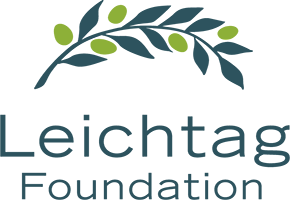
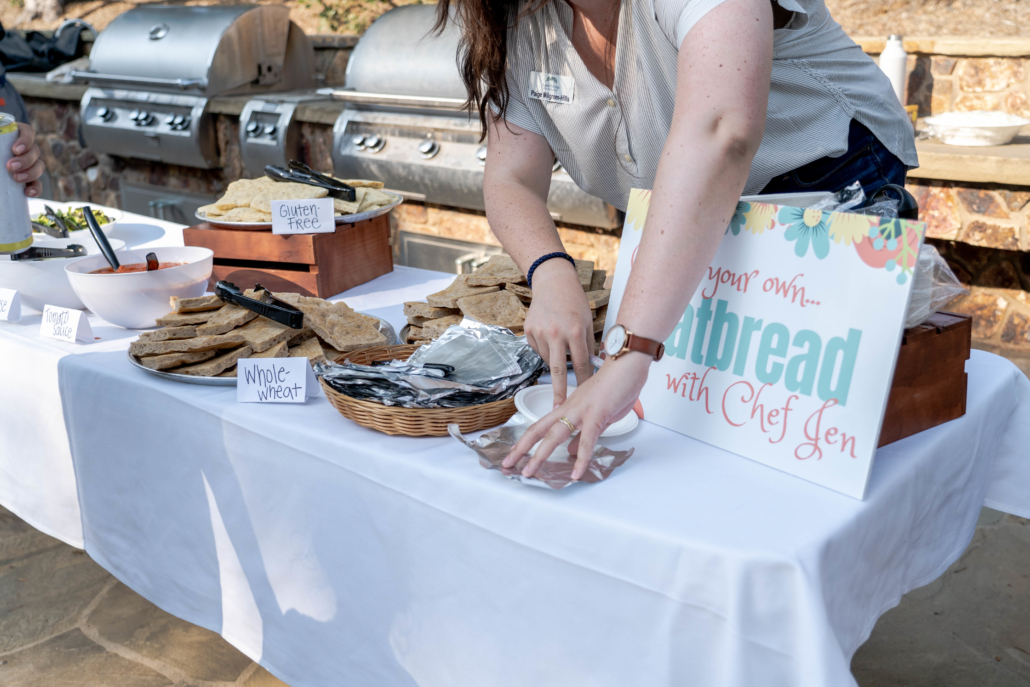
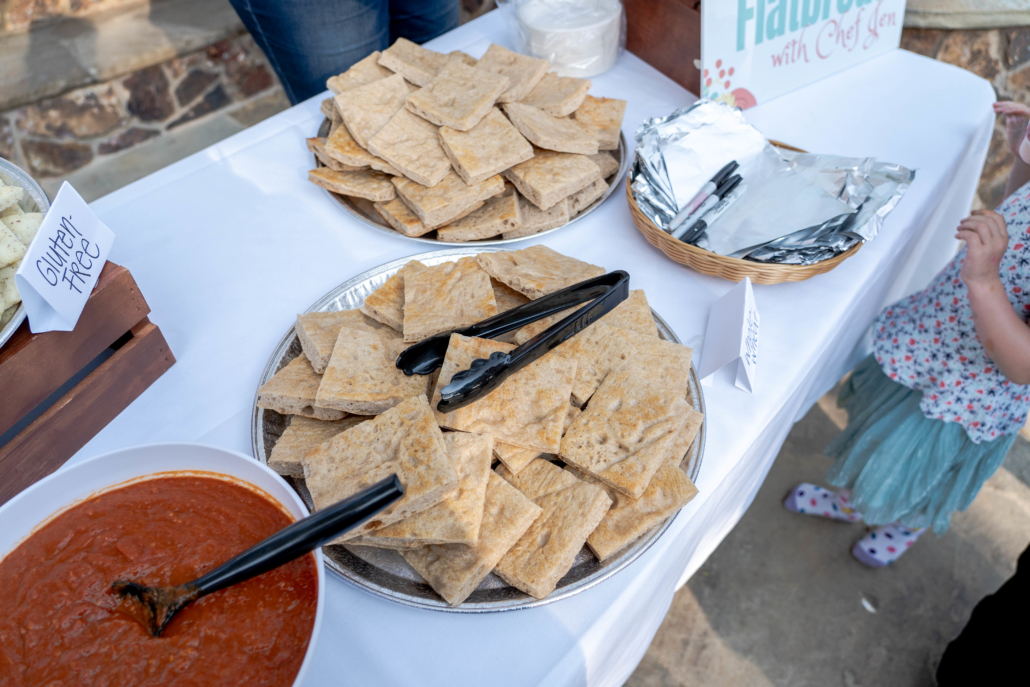
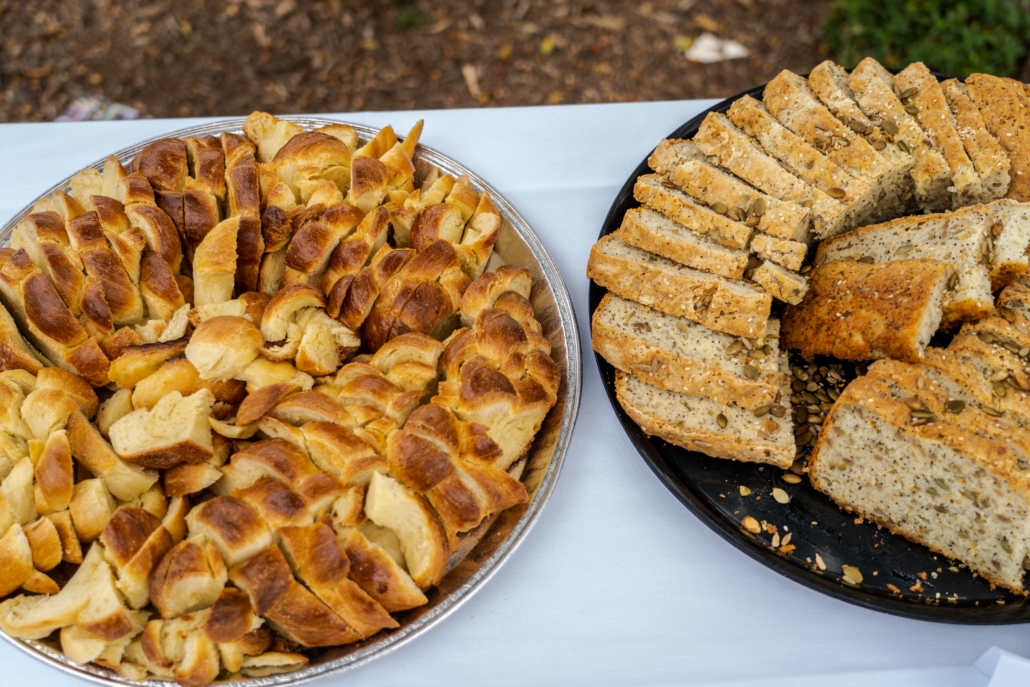
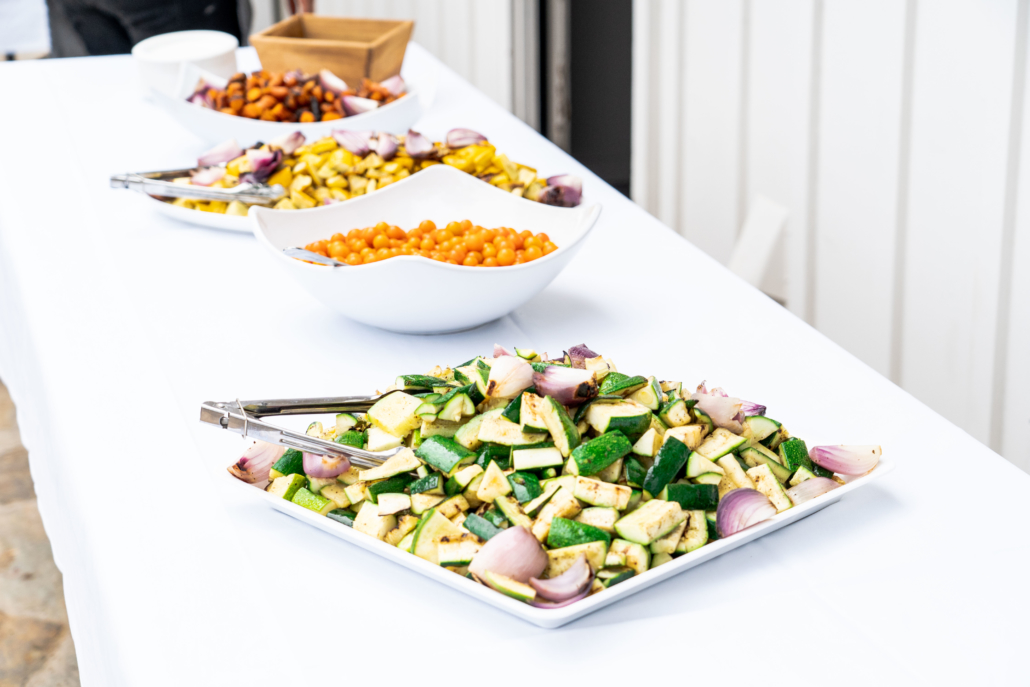
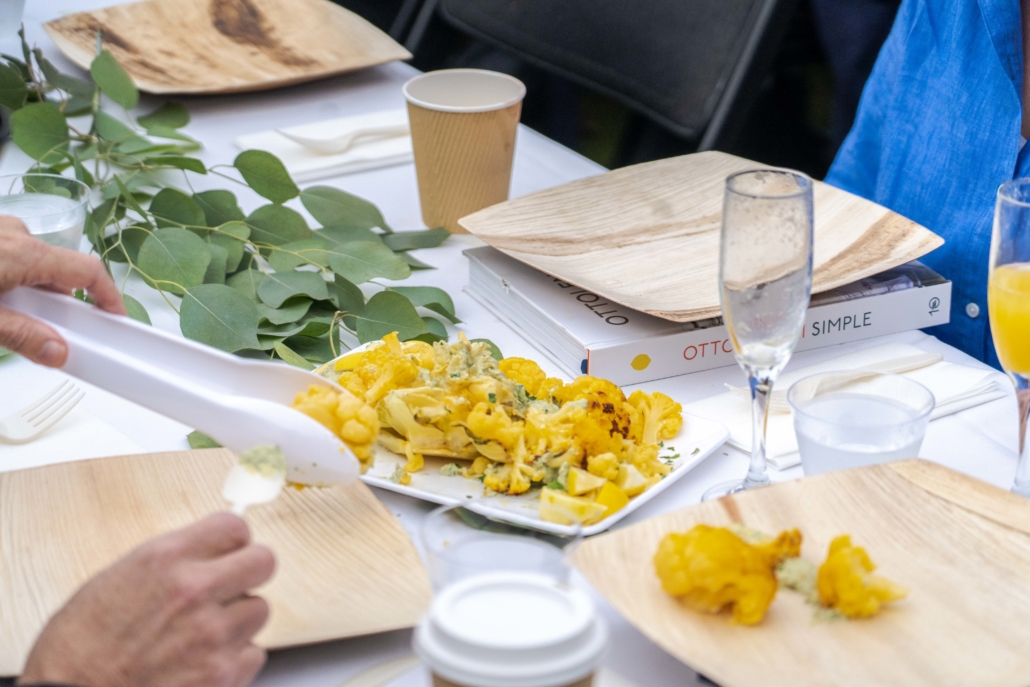

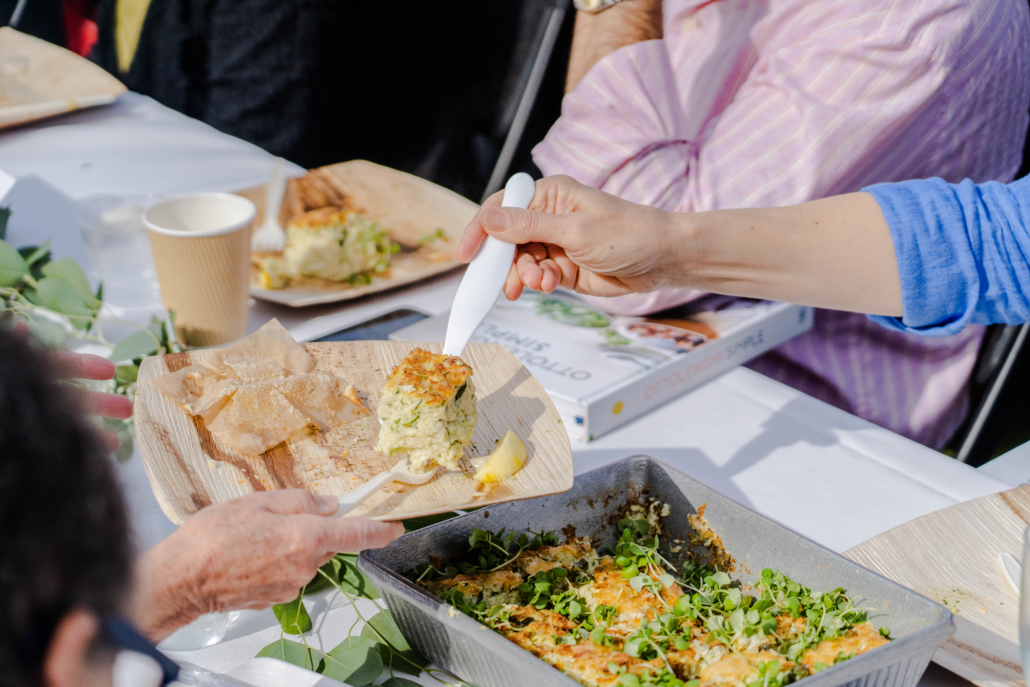
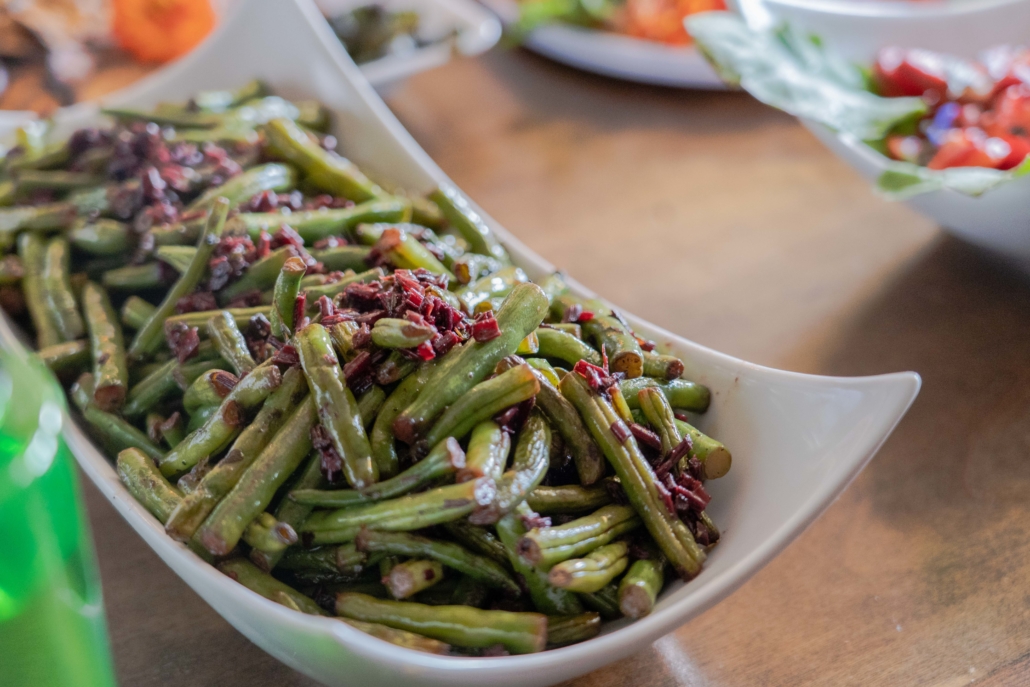
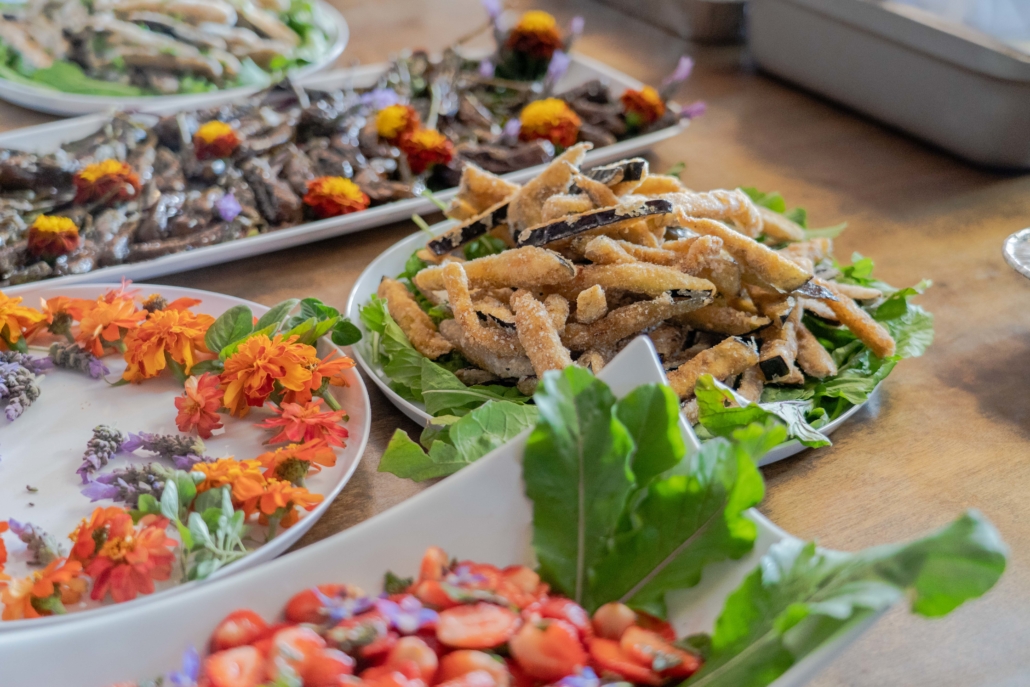
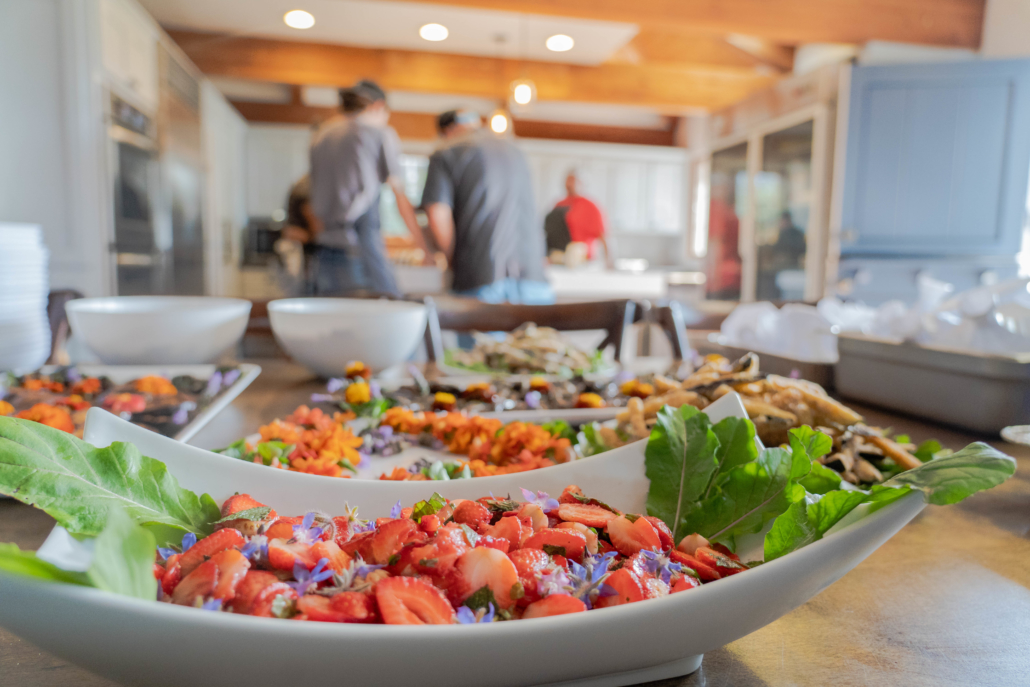


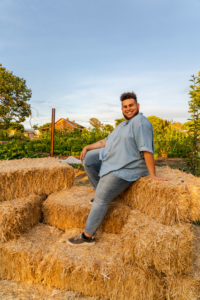 Black, Jewish and Queer. These three identities weave the fabric of who I am, but it took a long time to believe that they could exist together.
Black, Jewish and Queer. These three identities weave the fabric of who I am, but it took a long time to believe that they could exist together.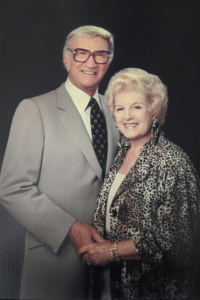 Lee and Toni Leichtag established the Leichtag Foundation in 1991 following the sale of their business. Lee and Toni were lifelong entrepreneurs with a passion for innovation and for supporting talent. They believed that only with big risk comes big reward. Both born to families in poverty, Toni to a single mother, they strongly believed in helping those most in need and most vulnerable in our community. While they supported many causes, their strongest support was for young children and the elderly, two demographics who particularly lack voice in our society.
Lee and Toni Leichtag established the Leichtag Foundation in 1991 following the sale of their business. Lee and Toni were lifelong entrepreneurs with a passion for innovation and for supporting talent. They believed that only with big risk comes big reward. Both born to families in poverty, Toni to a single mother, they strongly believed in helping those most in need and most vulnerable in our community. While they supported many causes, their strongest support was for young children and the elderly, two demographics who particularly lack voice in our society.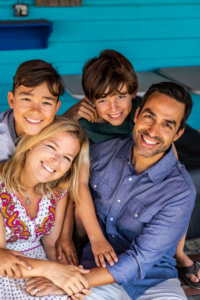 Lifelong Baltimoreans, Rabbi George and Alison Wielechowski and their sons, 11-year-old Lennon and 9-year-old Gideon, are more than pursuing the good life in Southern California. Having moved to San Diego more than three years ago, they are fulfilling a lifelong dream.
Lifelong Baltimoreans, Rabbi George and Alison Wielechowski and their sons, 11-year-old Lennon and 9-year-old Gideon, are more than pursuing the good life in Southern California. Having moved to San Diego more than three years ago, they are fulfilling a lifelong dream.
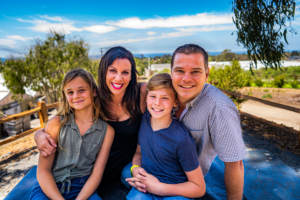
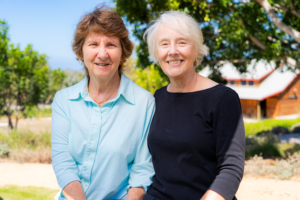
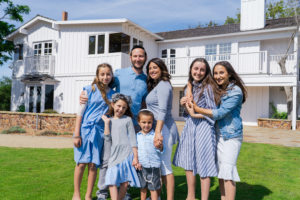
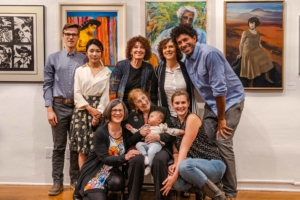
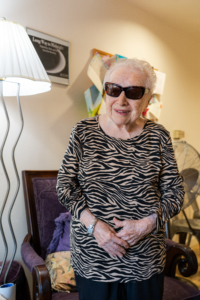
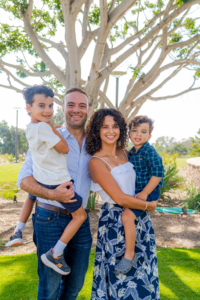
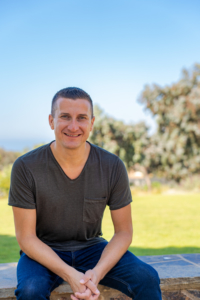 You would think that as the executive director of San Diego LGBT Pride, Fernando Zweifach López Jr., who uses the pronoun they, has done all the coming out they possibly can. A queer, non-binary individual who has worked for many years on civil rights issues, López also speaks openly and often about their father’s family, Mexican-American migrant workers who tilled the fields of rural California.
You would think that as the executive director of San Diego LGBT Pride, Fernando Zweifach López Jr., who uses the pronoun they, has done all the coming out they possibly can. A queer, non-binary individual who has worked for many years on civil rights issues, López also speaks openly and often about their father’s family, Mexican-American migrant workers who tilled the fields of rural California.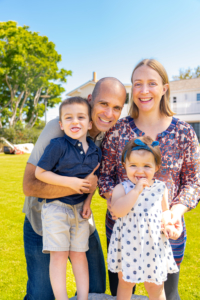 Stacie and Jeff Cook understand commitment. They live it.
Stacie and Jeff Cook understand commitment. They live it.